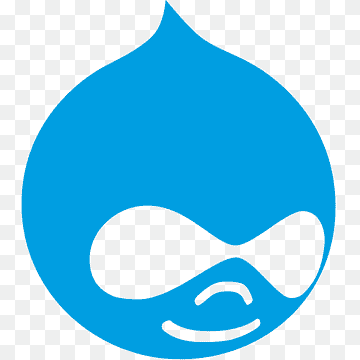Overview
Challenge
To eliminate a cumbersome infrastructure management process that consumed the dev team’s time and energies and slowed workflow to a crawl
Solution
Adopt Platform.sh to streamline workflow, refocus development skills on new client features, experiences, and solutions
Results
- 75% cost reduction over previous shared hosting solution
- Streamlined workflow/increased efficiencies
- Newly found flexibility to focus on, experiment with, and test ideas quickly—without worrying about server code
- Formation of a collaborative relationship with Platform.sh to develop new tools, client features
Leading TYPO3 specialist streamlines workflow, reduces costs, sets path for a productive future
High-profile customers like Cabinn, Denmark’s largest budget hotel chain; Sparbanken Syd, the world’s oldest independent savings bank; and the University of Vienna, one of Europe’s oldest educational institutions all rely on Platform.sh digital agency partner and TYPO3 specialist Pixelant.
Since 2006, Pixelant, part of full-service marketing agency Resultify, has delivered website development, design, and management solutions—along with services to measure and optimize website performance—to corporations, agencies, and universities.
With a commitment to consistently delivering the best value to its customers, Pixelant offers “everything TYPO3”– the open-source content management system (CMS) based on PHP.
Over time, the Pixelant team found itself spending more time managing infrastructure than building new features. Cloudnet, Pixelant’s managed hosting provider, imposed a heavy infrastructure modification process that required Pixelant to contact the provider every time they wanted to implement even minor changes; this approach significantly slowed the team’s dev workflow. Eventually, Pixelant founder Robert Lindh began to look for a more flexible solution. And he chose Platform.sh.
Platform.sh features save time, reduce maintenance
To support its growth goals and enhance efficiencies, Pixelant adopted Platform.sh in 2018. The agency’s in-house TYPO3 Consultant Mathias Bolt Lesniak reflects on Platform.sh’s ability to instantly clone environments from production, a feature Pixelant has found indispensable when working on large website projects.
“Moving large amounts of data between your local computer and the live environment is extremely time-consuming, and there are so many things that can go wrong,” says Lesniak. “With Platform.sh, we’re saving so much time—including in terms of support and maintenance—by being able to keep the test environment as close as possible to the live environment.”
With Platform.sh, Lesniak explains, the Pixelant support team no longer has to go through every single website to implement changes. For example, running Composer upgrades now occurs automatically across all websites, no matter how many. The support team simply runs some tests to ensure the functionality and publishes upgrades to the live site right after validation.
“Our developers don’t have to think about setting up databases, copying data over, and all those kinds of things. That makes it possible to really work specifically on development.”
Common technologies smooth migration and workflow
Common technologies made Platform.sh easy to integrate into Pixelant’s existing development ecosystem and enabled developers to use it with their current knowledge—an advantage for newcomers or freelance developers joining the dev team—all while maintaining overall team productivity.
Another aspect of increasing efficiency meant streamlining development workflow, a blocker with previous hosting provider Cloudnet. The inability for the team to deploy containers—a must for containerized local development environments with Docker—meant Pixelant couldn’t preserve a consistent environment from development to production.
“We wanted to create a continuous deployment process in our company and optimize it,” says Pixelant CTO Dmytro Hrynevych. “Since Platform.sh uses similar technologies like Git, we were finally able to achieve this goal.” Adds Lesniak, “Platform.sh makes it possible for us in a very simple way to achieve some of the things that we couldn’t get with our old shared hosting environment, such as security and deployment workflows.”
“Coming from a shared virtual hosting environment with limited resources, changing to Platform.sh was a major step for us,” Lesniak remembers. “We had to be a lot more aware of the resources being used by our application, and that was a big learning curve. With Platform.sh, we now think more about our resource usage as we develop. And that will serve us well over the long term.” Lindh adds, “We’ve received a lot of help and advice from the Platform.sh support to make the transition work for us.”
More freedom and flexibility, less DevOps
75% hosting cost reduction
Today, Platform.sh takes care of Pixelant’s infrastructure management, lightening the dev team’s workload. “Our developers don’t have to think about setting up databases, copying data over, and all those kinds of things. That makes it possible to really work specifically on development,” says Lesniak.
The Platform.sh branching feature lets the team create testing environments to simplify collecting feedback and preventing bugs from reaching production. “We’re using Platform.sh capabilities to clone environments that we can share with either clients for approval or our QA team for testing, when needed,” explains Hrynevych. “There’s greater flexibility when it comes to taking changes live,” adds Lesniak. “But underneath the technical side, there’s even more in the security realm, which makes Platform.sh a really good, safe place to be for our clients.”
Pixelant’s client sites were previously hosted on shared servers. With Platform.sh, each site now has its own closed, secure environment. Eliminating concerns about security frees the Pixelant team to focus on massive deployments and strategies.
“And the pricing is a nice bonus. We cut our costs by 75% compared to our previous solution,” says Lindh.
A collaboration that benefits more customers
Pixelant and Platform.sh have begun to collaborate on several projects to enhance the PHP development experience. To better monitor, fix, and optimize applications, Pixelant developed a graphical analysis tool for Platform.sh PHP projects. Initially developed for internal use, Pixelant decided to open-source the Platform.sh Log Analyzer tool to benefit other Platform.sh customers deploying PHP projects.
“The graphical analysis tool visually shows what’s happening on the server,” explains Lesniak, who developed the tool. “It helps to pinpoint how resources are used and in which context.”
When servers receive an influx of requests and show high memory usage, the tool helps to identify performance issues by revealing the exact distribution and causes of resource consumption. It also establishes a relationship between the types of requests and their responses.
The Log Analyzer Tool collaboration between Pixelant and Platform.sh was just the beginning of a myriad of future joint projects targeting PHP and TYPO3 users.
T3Kit: upgrading the TYPO3 experience for agencies
To enhance the TYPO3 experience for clients, Pixelant created T3Kit, a ready-to-use package of components tailored to web agencies that develop TYPO3 websites. “T3Kit is not just a standard website template; it’s all the building blocks you need to easily create enterprise-ready websites that are customizable to individual needs,” says Lesniak.
Pixelant’s long-standing experience with agency clients enabled its team to quickly identify relevant services and features, such as Apache Solr search and Google Maps integration. T3Kit contains a comprehensive library of components—like page layouts, sliders, and accordions—that meet the unique needs of customers and agencies of all sizes. To stay on top of the latest TYPO3 features, T3Kit is being adapted to the new TYPO3 10 Version, released in April 2020 as LTS-Version.
To capitalize on the partnership with Platform.sh, Pixelant plans to integrate a Deploy on Platform.sh button for its T3Kit users—making development faster and easier.
If agency clients want to opt for a fast solution that requires minimal coding, they can use the T3Kit WYSIWYG editor to customize default components behavior and generate the corresponding TYPO3 configuration. Users will then be able to deploy the edited website to Platform.sh with the click of a button.
“The collaboration with Platform.sh is a way for us to better support our current clients and tailor to new clients who need the B2B features we already have in place. It also proves that Platform.sh is an ideal enterprise hosting solution for B2B providers.”
The Deploy on Platform.sh button is only the first step in a wider collaboration aimed at providing a fully featured, enterprise-grade B2B solution. Pixelant’s objective includes the integration of a product manager to nest products and the synchronization to Product Information Management (PIM) systems without sacrificing the performance of a website—regardless of how many products there are to display.
Lesniak shares, “Not only will you be able to deploy with a push of a button, but you’ll also get a website with a product module that lists all of your products, all ready, set up, and connected to your PIM system.”
Moving forward into a productive future
Pixelant’s commitment to serving clients with the most advanced technology solutions made it natural for the agency to strive for a future-proof hosting provider and partner. Pixelant’s move to Platform.sh not only enhanced its dev team’s flexibility, but also created a strong partnership with mutual support.
“I would definitively say that Platform.sh is a strong partner for us. It’s not just about hosting—it’s about workflow and the approach of building sites,” says Lesniak.
As Pixelant works on a myriad of ways to improve clients’ TYPO3 experiences, like the collaboration with Platform.sh to enhance T3Kit, both teams look forward to further cooperation on future projects. In the meantime, Pixelant’s developers continue to leverage Platform.sh and their newly won flexibility.
Our developers are happy with Platform.sh. They really like it, which is the most important factor for us to flourish as a company.”
 Switching to Platform.sh can help IT/DevOps organizations drive 219% ROI
Switching to Platform.sh can help IT/DevOps organizations drive 219% ROI Organizations, the ultimate way to manage your users and projects
Organizations, the ultimate way to manage your users and projects





